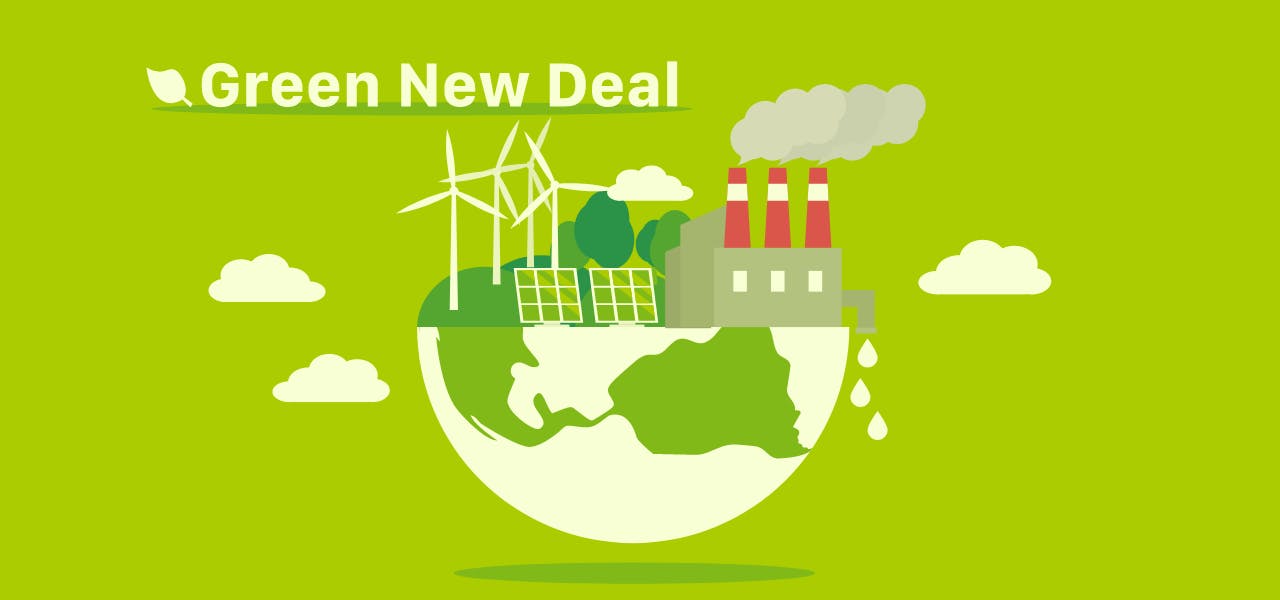There is no denying the evidence of a declining environment on a worldwide scale. Leaders in almost every country understand that there is a real and pressing need for a solution to a global environmental problem before it becomes unfixable and future generations pay for our selfishness. Issues such as carbon dioxide capture, resource utilization and storage, and the need to turn nonrenewable resources into renewable energy applications are relevant across the globe.
A solution to this problem has been proposed in the United States under the Green New Deal. Originally introduced by Representative Alexandria Ocasio-Cortez and Senator Ed Markey on February 7, 2019, this New Deal has made waves as a progressive suggestion with potential repercussions that are both good and bad, and the impacts on environmental science are already being seen.
What is the Green New Deal?
The foundational goal of the Green New Deal is to get rid of greenhouse gas emissions in the U.S. while also meeting all the need for power with clean energy within the next decade. Through this plan, millions of jobs would be created in order to provide everyone the resources necessary to access clean air and water, as well as give every family feasible access to healthy food.
For this to be accomplished, the federal government would be required to make significant changes, such as investing funding to aid with communities who were affected by climate change, upgrading infrastructures to defend against severe weather, and investing in renewable power sources as well as research to improve the technology for such.
Between creating new renewable resources, investing in technology already there, and upgrading buildings and homes to make them more energy and water efficient, there is a lot of work to be done.
Beyond the power and infrastructure guidelines, more support is to be given to aid in family farming, sustainable farming, and equitable food system creations. Ecosystems that had been damaged would be restored through land preservation and afforestation, hazardous waste would be cleaned up and removed, and transportation systems with zero-emission vehicles would be put into place for public transit.
Arguments For and Against This Deal
Most people aren’t denying the science that says something has to be done. They’re arguing against the Green New Deal because of the complexities involved in it. It’s one thing to say “this is the best way to fix the problem,” and another thing entirely to fund it and put the action plan into place.
Proponents of this deal support it because it is science-based. The most recent national and international reports were used to determine the resolutions that were necessary. Leaders in climate science and other sciences recognize that there must be a solution to the environmental issues before they affect socioeconomic factors, too.
Opponents, however, argue that this new deal is socialism in a fancy package. They claim that it is the imaginary makings of a juvenile mind, that it’s not feasible, and that the entire theory is not taking into account all the problems that it would bring along with it.
What they don’t argue, though, is that it would, in effect, fix everything it says it is going to fix.
The Impact on Environmental Science Already
One thing about it: whether you’re for or against the Green New Deal, you’ve heard of it. The implications of the plan have already begun to be felt because, at its core, the facts are that there has got to be a change. The idea of the Green New Deal just means that there will be a solution sooner or later, whether it’s AOC’s plan or something else.
Because of the need for a resolution to this global problem, industries and organizations are already stepping in to do their part. They don’t have to be federally ordered under legislation to do better in protecting the environment and coming up with new technology. Researchers in environmental science are increasing their experiments and studies to find new, innovative ways to protect future generations from the damage already done and improve the lives of those in today’s society.
